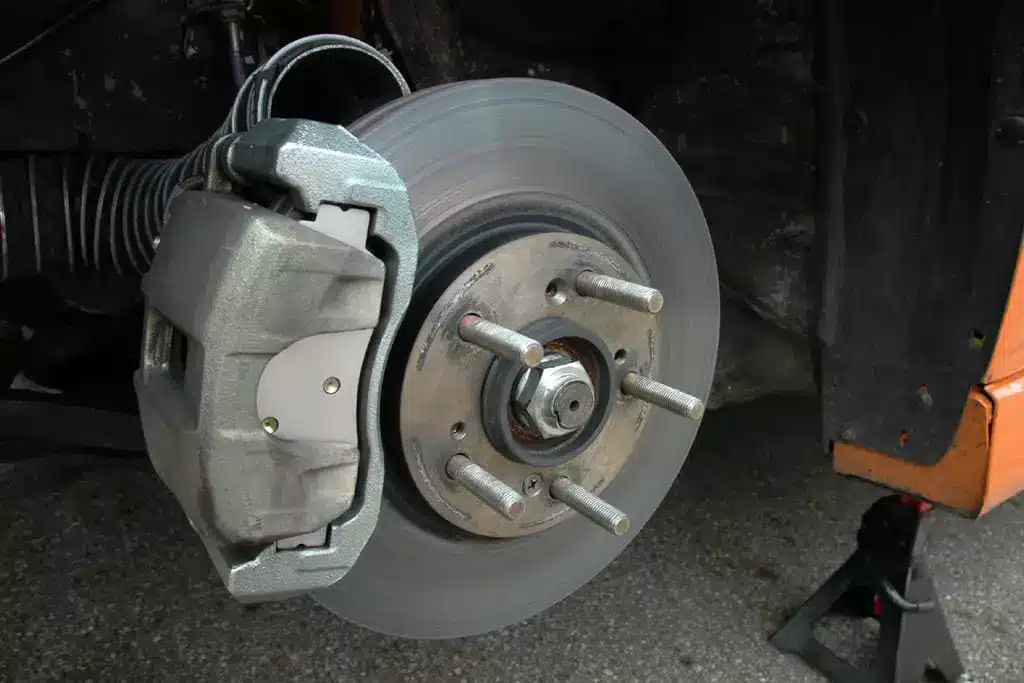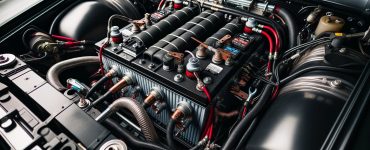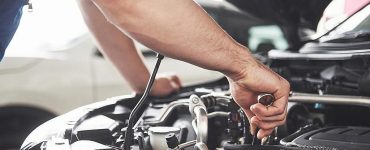The Essential Guide to Car Brake Maintenance
Key Takeaway Table
| Topic | Key Takeaway |
|---|---|
| Braking System | Understand the key components and their functions. |
| Warning Signs | Early detection can save costs and ensure safety. |
| Driving Habits | Aggressive driving can wear out brakes faster. |
Every vehicle owner knows that brakes are an essential component of a car, ensuring safety on the road. However, not everyone realizes the importance of regular car brake maintenance. This guide aims to shed light on the crucial aspects of maintaining your car’s braking system, ensuring you stay safe on the roads and save on potential hefty repair costs.
Understanding Your Braking System
The braking system is more than just a pedal you press to slow down or stop your vehicle. It’s a complex system made up of various components working in unison. Understanding these components can help you better appreciate the importance of regular car brake maintenance.

Components and Their Functions
- Brake Pads: The primary component that creates friction to slow down your car. Learn more about brake pads and their maintenance here.
- Rotors: These are discs that the brake pads clamp onto, causing the vehicle to slow down or stop.
- Brake Fluid: Essential for transferring the force from the brake pedal to the brakes.
- Calipers: They house the brake pads and, when pressed, squeeze the pads onto the rotors.
Types of Brakes and Their Differences
There are mainly two types of brakes:
- Disc Brakes: Commonly found in most modern vehicles, they offer better stopping power and are more resistant to overheating.
- Drum Brakes: Older system but still found in some cars, especially at the rear wheels.
Signs Your Brakes Need Attention
Being proactive about car brake maintenance isn’t just about preventing costly repairs; it’s also about ensuring safety. Recognizing the warning signs early on can make a significant difference.
Warning Signs and Symptoms
- Unusual Noises: If you hear squeaking, squealing, or grinding noises when braking, it’s a sign that your brake pads or rotors might be worn out.
- Vibrations: Feeling vibrations or shuddering in the brake pedal indicates rotor issues.
- Reduced Responsiveness: If the brakes aren’t as responsive or the pedal sinks towards the floor, there might be a brake fluid leak.
- Pulling to One Side: If your car pulls to one side when braking, it could mean uneven wear in the braking system.
How Driving Habits Can Affect Brake Wear
Different driving habits can either prolong or shorten the lifespan of your brake components. Aggressive driving, such as hard braking or speeding, can wear out the brakes faster. On the other hand, practicing smooth driving techniques and being mindful of brake usage can help extend the life of your brake system.
Impact of Driving Habits on Brake Wear
Driving Habit Impact on Brake Wear Aggressive Braking Increases wear Coasting Before Stopping Reduces wear Frequent Short Trips Increases wear Using Engine Brake Reduces wear
DIY vs. Professional Maintenance
While some car enthusiasts prefer to handle their car brake maintenance, it’s essential to recognize when to call in the experts.
Tips for DIY Enthusiasts
- Always refer to your car’s manual.
- Invest in quality brake parts.
- Ensure you have the right tools before starting any brake work.
Benefits of Professional Servicing
- Expertise in handling different brake systems.
- Advanced diagnostic tools to detect issues early on.
- Assurance of quality workmanship and parts.
Safety Concerns of Neglecting Brake Maintenance

It’s paramount to understand that brake maintenance isn’t just about saving on costs but ensuring that every journey is safe for both the driver and other road users.
Potential Dangers on the Road
- Decreased Stopping Distance: Worn-out brakes can drastically increase the distance your car needs to stop, especially in emergency situations.
- Loss of Control: Faulty brakes can result in the car skidding or losing control, especially on wet or slippery surfaces.
- Increased Accident Risk: Delayed brake response can lead to collisions, endangering lives.
Importance of Regular Inspections
Regular brake inspections are the key to identifying potential issues before they become major problems. By scheduling consistent check-ups, you can:
- Ensure that all components are functioning correctly.
- Detect and address minor issues before they escalate.
- Extend the lifespan of your brake system.
Table: Benefits of Regular Brake Inspections
Aspect Benefit Safety Reduces risk of accidents caused by brake failures. Longevity Prolongs the lifespan of brake components. Cost Savings Early detection and repair prevent expensive replacements. Peace of Mind Ensures optimal performance and safety on the road.
Conclusion
Brake maintenance is a critical aspect of vehicle ownership that should never be overlooked. By understanding your braking system, recognizing the warning signs, and opting for regular professional inspections, you not only ensure your safety but also save on potential repair costs. Always remember, when it comes to brakes, it’s better to be proactive than reactive. For any brake-related queries or to learn more about our services, feel free to reach out to us.





[…] when it’s time for a tune-up, disc brakes are easier to access and service. Check out our essential guide to car brake maintenance for more […]
[…] To ensure you’re getting the best, remember to check out the essential guide to car brake maintenance. […]
[…] Checks: Follow the essential guide to car brake maintenance to catch issues […]